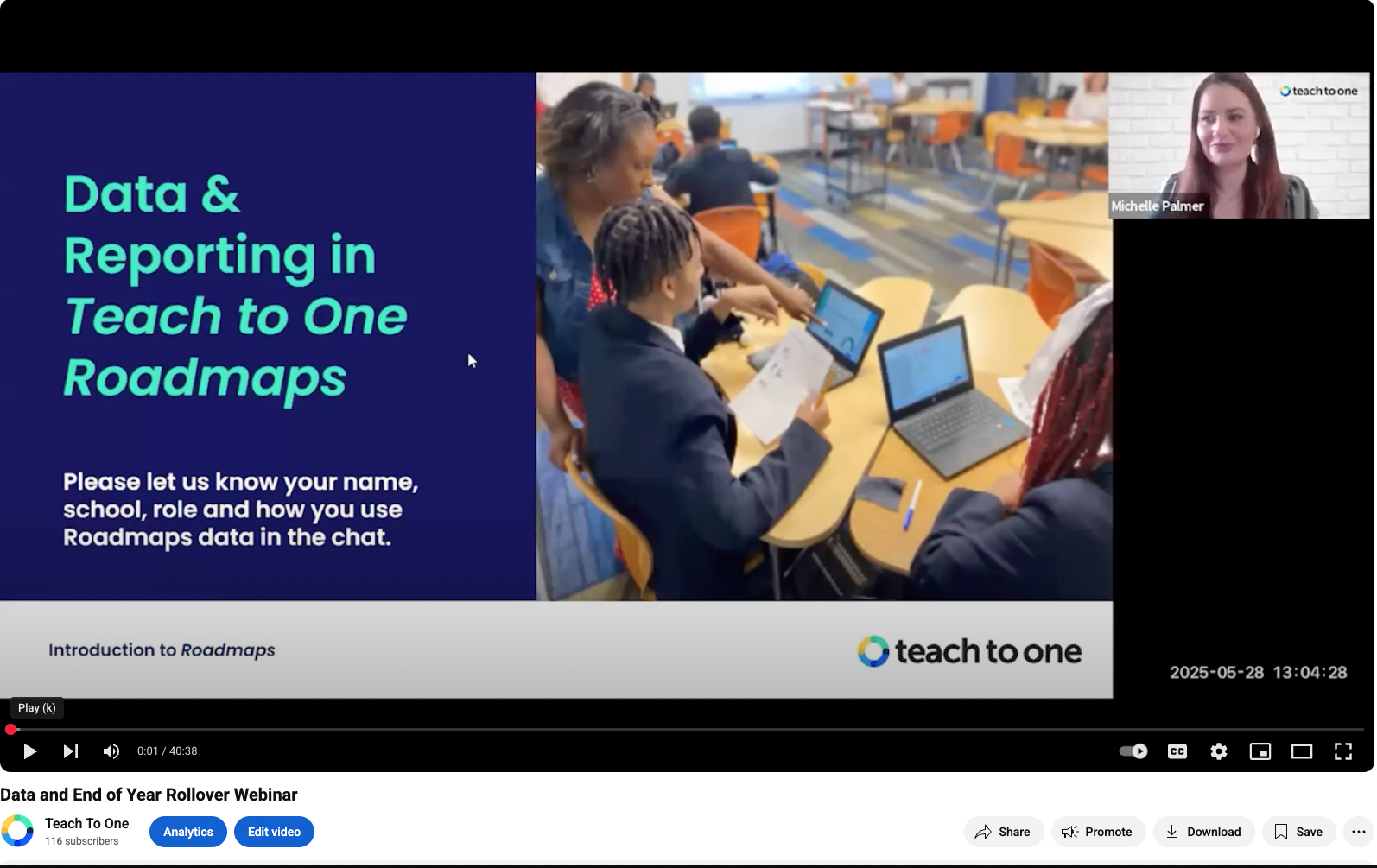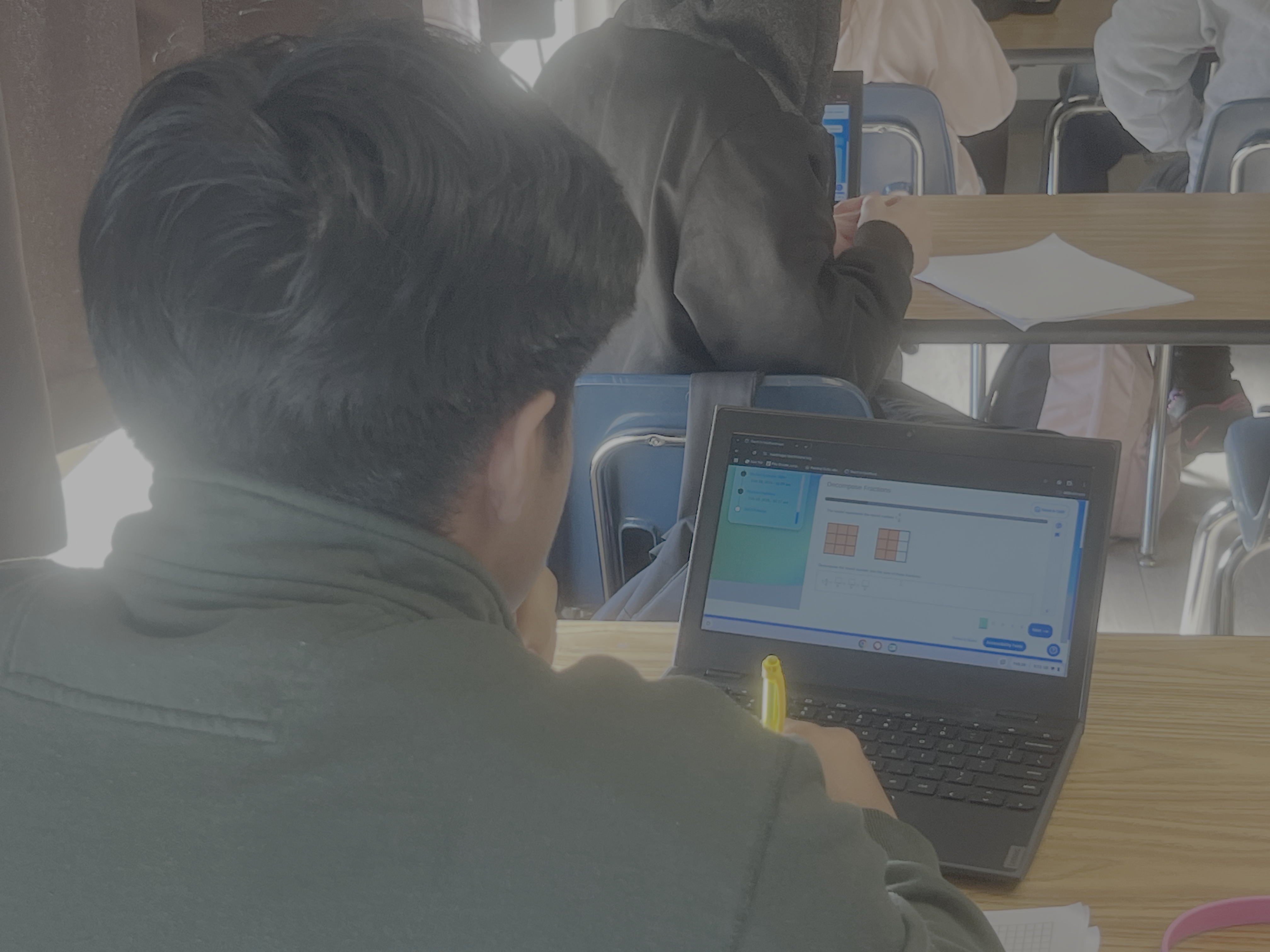Three reasons to put more emphasis on math skill proficiency than on grade-level proficiency
March 30, 2022
By Teach to One

The plain truth is that it’s time for schools to prioritize math skill proficiency over grade-level proficiency. That doesn’t mean abandoning it, but as technology continues to make it ever easier to tailor and individualize math learning, it’s time to rethink the priority order.
Here are just three reasons why.
Reason 1: Skill gaps continue to widen (and a focus on grade-proficiency won’t close them effectively)
Pre-pandemic research conducted across 10 U.S. states by non-profit assessment organization NWEA shows that student proficiency in the average 5th grade classroom spanned a whole seven grade levels.
Of 375,000 fifth-graders in those states in 2016, one-third scored at (or below) third grade in math and one-third were at fourth grade. Only 25% possessed fifth-grade proficiency while 10% had above-grade-level math skills.
The researchers, who worked in conjunction with Texas A&M, Johns Hopkins and Duke universities and the University of Wisconsin-Whitewater, only expect these skill gaps to widen, and suggest that the lowest-achieving kids may fall two more years behind.
The reason is that too many of our classrooms operate instructionally in ways that are materially indistinguishable from how they worked in the 20th century.
Students are generally taught skills that correspond to their enrolled age-based grade-level, regardless of where they are starting from. And, since math skills are cumulative and unfinished learning readily accumulates, in this teaching paradigm those who are already behind tend to fall even further behind. Those who are ahead can have a hard time accelerating further.
This system fails those who enter behind grade level and hinders those who enter near the top. Students deserve better (and so do their teachers).
Reason 2: Whether a student is ahead, on, or behind grade-level standards, a skill proficiency focus is still an opportunity to accelerate their learning
This ever-widening learning gap actually makes differentiated instruction critical.
Differentiated learning — the process of tailoring instruction for children with varying levels of achievement — has historically been a major challenge for teachers who had to modify curricula that didn’t meet their students’ needs.
Yet we argue that this tailored educational approach to math is the most-effective way for every student to accelerate their learning — especially now that teachers have tools that make it much easier.
This approach focuses on a personalized mix of pre-, on-, and post-grade skills designed to help each and every student catch up — and get ahead. It emphasizes skill proficiency ahead of grade-level proficiency (while respecting the need to maintain high expectations and rigorous accountability and to drive educational equity).
In the absence of a tailored approach, those who are behind will continue to struggle, and those who are ahead won’t get anything out of lessons that cover material they’ve already mastered.
Reason 3: Algebra is a key indicator for student performance in college and career
The reality is that algebra proficiency has an outsized impact on college admissions. Most courses demand math proficiency on their SATs and ACTs. Students who lack that face the prospect of limited post-school educational and career options.
Algebra is often the first math class taken in high school. That makes it more or less the gatekeeper to higher-level mathematics needed for college study — and careers in science, technology, engineering, (or math itself).
It’s also part of a student’s freshman grade point average — a signifier of whether they will graduate on time or not. Passing Algebra 1 is a graduation requirement in most states.
If students enter high school without a firm understanding of the math prerequisites needed for algebra, the simple fact is that they will probably struggle.
As long as teachers identify and understand a student’s skill gaps, they can provide tailored instruction through different tasks, mini-lessons and group work that will address any unfinished learning necessary to grasp those vital algebra concepts.
They can then make a clear connection to new learning.
Latest Posts

Recording: Data and End of Year Rollover Webinar
In this 45-minute webinar recording, Michelle Palmer, Senior Director of Customer Success, and Liat Greenspan, Associate Director of Program Success, explain how to assign a skill or pathway, use the Teacher Dashboard to identify struggling students, leverage the Reports Hub for weekly planning, and monitor growth and engagement on the Progress Page.

Getting Students Engaged in Math at Valley Charter
Students arrive at their assigned seats equipped with laptops and individualized Teach to One Roadmaps packets, which include a work time poster, a note-taking sheet, and graph paper.

Webinar Recording: Unlocking Algebra
On Tuesday, May 13, TNTP and New Classrooms released the report: Unlocking Algebra – What the Data Tells Us About Helping Students Catch Up. On the same day Adam Meier, Partner, Research Center of Excellence, TNTP, and Joel Rose, Co-founder and Chief Executive Officer, New Classrooms, presented the findings, recorded in the webinar below. Looking […]